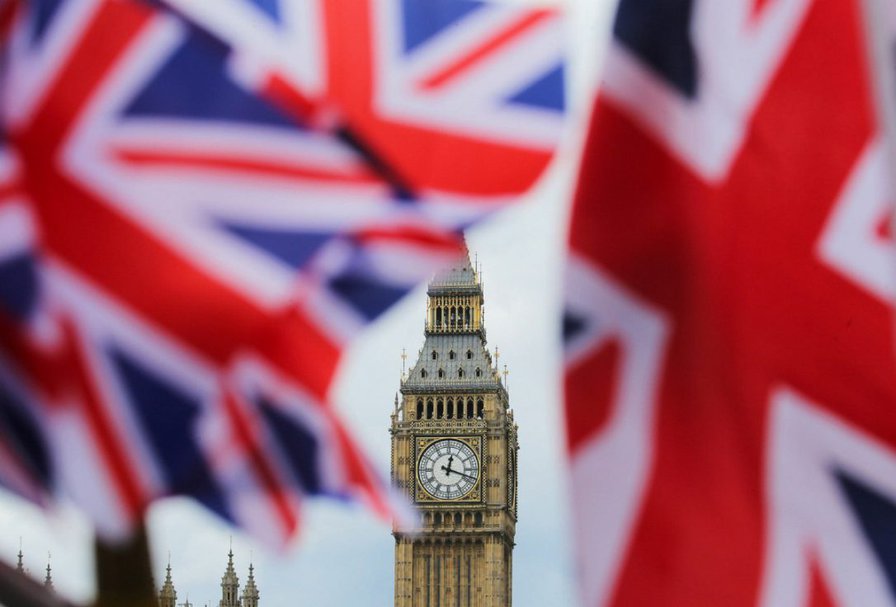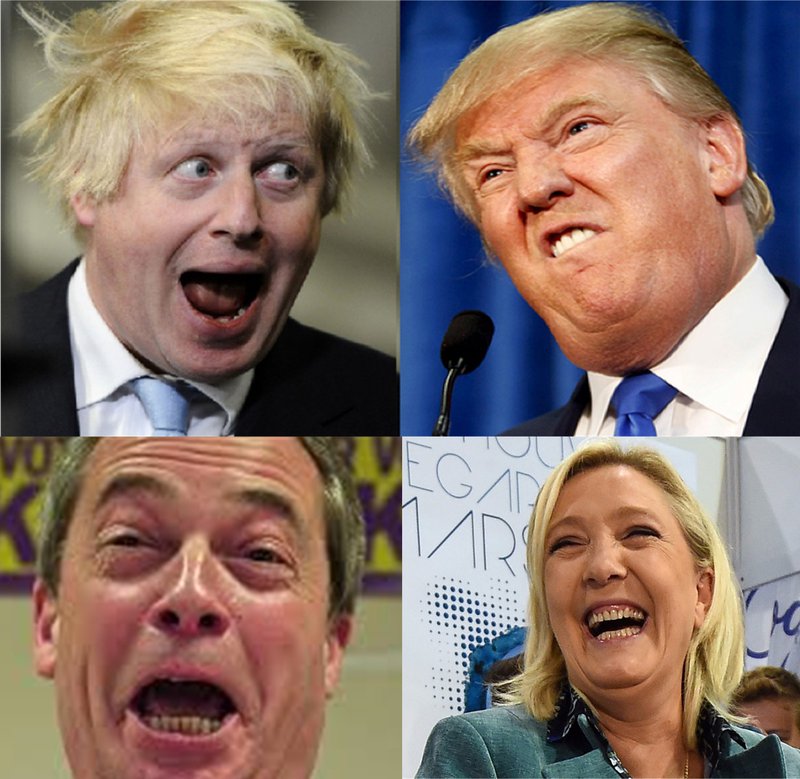Losing my religion

Imported from the Blogactiv.eu blogging platform, closed without warning in 2021. Links, images and embeds not guaranteed, and comments not displayed.
Brexit, as experienced by a British-Australian comms guy in Brussels. I used to be sure of many things. Now I'm questioning a lot. But not everything.
I used to think rational arguments mattered
I trained in physics in Australia and turned up in Brussels as a science writer. As I pointed out in 2010, "science writing is about explaining a field which is very complex, full of jargon and important, to people without the specialised training. It’s not that surprising that I switched from writing about science to writing about Europe."
My paradigm was therefore making complex, rational arguments clearly understandable. Because EU policies and programmes are based on rational arguments, developed by specialised policy wonks. But now apparently we’ve all had enough of experts and rational arguments count for nothing. But the EU is built on rational arguments. So now what? Flag waving?
I used to think I was part-British, and that that was a good thing
My parents emigrated to Australia from Northern Ireland in 1955, so before slinging a secondhand backpack over my shoulders I applied for a UK passport. At the time it was nothing more than a convenience, but as my two weeks in Brussels turned into nine years I increasingly identified with British culture.
Even then I knew that I was vicariously living a filtered view of what Britain was, but I needed to attach myself to something, and the best of Britain which made it across the Channel - the BBC, broadsheet newspapers, humour, music, creativity, literature - isn't exactly hard to like.
even then I remained British-as-adjective, not noun
But even then I remained British-as-adjective, not noun: I was British-Australian, not Australian-born British. So I only feel a fraction of the pain and bewilderment my British friends must be feeling right now. Many have written very movingly on the subject. I limit myself to one Tweet, posted the night before Brexit:
<script async src="https://platform.twitter.com/widgets.js" charset="utf-8"></script>The UK may be staying in, but I'm probably leaving. The UK, that is. Horrific, barely disguised racism, contempt for reason & facts. Ugly.
— Mathew (@mathewlowry) June 23, 2016
https://twitter.com/mathewlowry/status/746099764761092097
When I arrived in Brussels in 1991 I was stunned by the success of populist parties like the Front National and Vlaams Belang, but had always consoled myself that the British were too sensible for that sort of thing.

So nothing prepared me for the vision of Britain revealed by the Leave campaign. I'm not saying that Brexiteers are fascists. I am saying that their campaign was ugly populism. How did this happen to my Britain? Maybe it never was mine. So now what? To that I do have an answer: I'm becoming Belgian.
I used to think the Web was a good thing, and Deference a bad thing
I’ve been on the Internet since 1988 but I remember when only the rich and influential had a voice. As a sci-tech journalist in the early 1990s I thought I knew what the Web was bringing, and welcomed it, developing the EC's first non-brochureware online architecture and Web2.0 community around the turn of the century.
how could society suffer from giving everyone the chance to speak?
After all, how could society suffer from giving everyone the chance to speak? And how could the disappearance of deference be anything but positive? Today we're seeing the first signs of digital mobocracy. As Plato (via Andrew Sullivan) pointed out 2500 years ago, democracy has a "singular weakness — its susceptibility to the demagogue":
"the longer a democracy lasted, Plato argued, the more democratic it would become. Its freedoms would multiply; its equality spread. Deference to any sort of authority would wither ... As the authority of elites fades, as Establishment values cede to popular ones, views and identities can become so magnificently diverse as to be mutually uncomprehending... There is no kowtowing to authority here, let alone to political experience or expertise... when a democracy has ripened as fully as this, Plato argues, a would-be tyrant will often seize his moment."
- America Has Never Been So Ripe for Tyranny
Was digital mobocracy inevitable the moment filter bubbles made echo chambers so ubiquitous and compelling? Am I right to gird myself for the AfterTrump? Most unsettling of all: is the Internet the problem? And if so, now what?
Don't blame the loudspeaker
It says a lot about my state of mind since June 24 that I seriously entertained that question. But the real problem predates the Web: our democracies just don't work that well. They still remain our best bet, but no amount of pro-EU propaganda will paper over the fact that they're so weak that unelected economists and global corporations depose democratically elected governments. People are rightly pissed off.
Of course, people have always been pissed off - democracies are the only system that allow them to express anger legally. The difference today is that the internet gives them a voice they never had before. But you don't blame the loudspeaker for the sound it's amplifying. Even if it's a choir sung by Donald Trump, Nigel Farage, Marine Le Pen and Geert Wilders.
So what now?
When the ground shifts, there are only two certainties: The Internet might empower the mob, but it can also make our democracies better. It is unparalleled in its power to both educate and empower. The problem is in how it's being used. Because while we all live in the Early Internet Era, our Institutions - regional, national, EU - still work to pre-internet paradigms.
- the one direction you cannot go is into the past: repeating yesterday's solutions only digs you deeper
- most problems carry the seeds of their solution.
our Institutions still work to pre-internet paradigms.
When I first came to Brussels as a science writer, my gig was writing corporate brochureware - success stories, magazines, brochures etc. - about EUropean research programmes. I enjoyed the science writing, but noone would ever tell me how those glossy publications were distributed, nor how many were read before the rest were pulped. Possibly my clients were themselves too afraid to ask.
In any case, their true audience were the Already Convinced in the Brussels Bubble. I doubt any of it convinced anyone else of anything. The EC is still doing this today - the equivalent of persisting in building cargo yachts in the Age of Steam. But changing the product is a content strategy detail compared to the real paradigm shift required:
Maybe instead of using communications to tell people what a great product we have, we should use communications to make a better product, and then communicate that.
- My EuroComm2016 Rapido on the Future of Communications
Making that happen will not be easy, but there's not much choice - as Simon Anholt pointed out, propaganda simply won't work:
“'One of the wonderful things about globalisation and the age we live in today is that propaganda has become impossible' ... using social media for propaganda purposes is a contradiction in terms which has failure built-in”.
- Simon Anholt on EU propaganda
How?
This post is more about my personal reaction to Brexit, so for my first thoughts on the How? check out Of technocrats, journalistic balance and telling EU stories (Brexit update). TL;DR:
- rational arguments still required as bedrock or ‘stock’ content;
- propaganda won't work so don't try;
- 10 good stories about people empowered by the EU, not 100 average stories about projects;
- build crossborder, participative communities around EU policies and programmes to empower Europeans, deliver Europe better and make the EU more democratic;
- fix Europe’s media industry and build the EU public sphere, etc.
Details in the full post, one of three I've revisited, updated and republished on Medium since Brexit. The others are The Eurosceptics’ rise: my personal timeline, and Prepping for the AfterTrump.
And while you're over there check out I have facial blindness so I’m crap at networking, but let’s talk anyway - it's got nothing to do with Brexit, but give it a read if you feel like catching up for a coffee or Skype.
Related reading
More Stuff I Think
More Stuff tagged eu , mobocracy , eparticipation , propaganda , media , filter bubble , brexit , groupthink , storytelling , identity , science communication
See also: Content Strategy , Online Community Management , Content Creation & Marketing , Communications Tactics , Psychology , Social Web , Media , Politics , Communications Strategy , Science&Technology